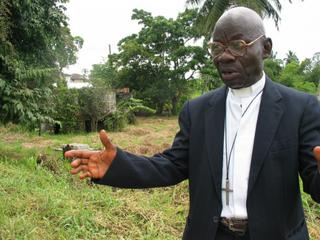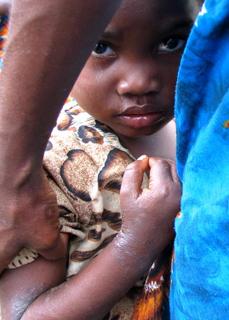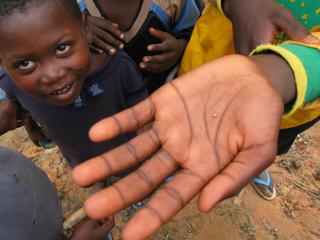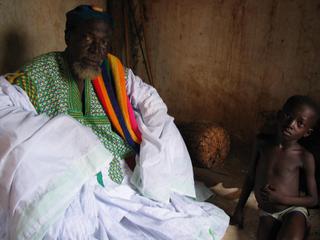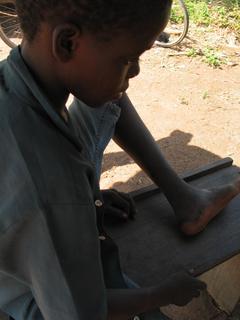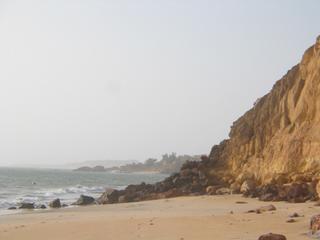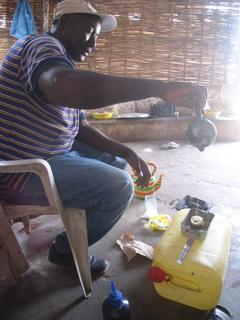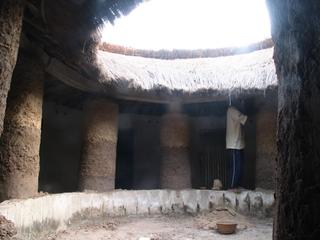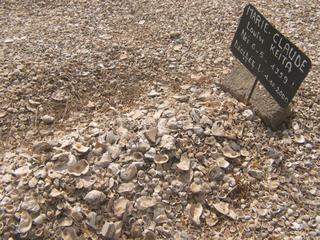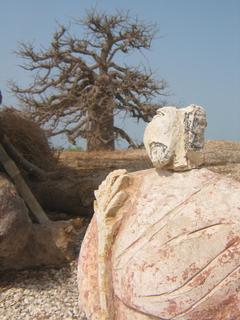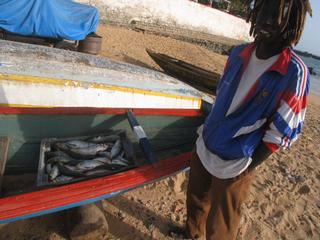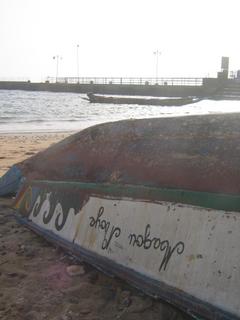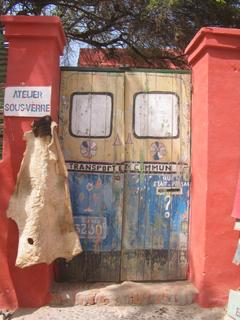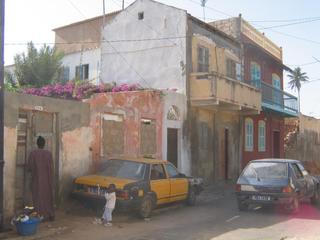Africa cried; the world didn't listen
Africa cried, the world didn't listen
In May, one aid agency sent out a news release saying that 800,000 children in West Africa were facing hunger. But, as Karen Palmer discovers, few people noticed until the pictures of starving young ones began to flood in
KAREN PALMER
For a local aid worker in far-flung Timbuktu, the first sign of the impending food shortage came in open-air markets around the dusty main square, where butchers sharpened thin, curved knives over bloody masses of beef as swarms of flies buzzed overhead.
Meat prices plummeted — even the choicest cuts sold for a couple of cents — as the nomadic cattle herders around Mali's famed trading city began selling their animals and flooding the market, trading protein for grains such as rice or millet, which had already disappeared from their meagre stores.
That was in March of this year, two months after United Nations entomologists saw breeding pools of locusts dropping eggs around the chain of mountains in Morocco and in the isolated North African countries of Algeria, Tunisia and Libya.
Weather conditions aligned to produce a plague of literally Biblical proportions, which headed across the desert, as far east as Niger and as far south as Ghana. It was the largest locust invasion in 15 years.
Then the rains didn't come for the third consecutive year, and the few plants that survived the locust onslaught dried up and died.
Now, as pictures of toddlers with hungry eyes and bloated bellies flood in from the largely unnoticed desert areas of western Africa, experts the world over agree the continent's latest food crisis could easily have been prevented.
"This is one of the classic cases of all the lessons that have been learned — and all have been ignored," says Otto Farkas, emergency relief and disaster mitigation program director at World Vision, which is distributing food in parts of Mali, Mauritania and Niger.
Warnings about the impending food shortage were overlooked; calls for aid went unheeded.
The latest estimates suggest that the United Nations will help feed 2.5 million people in Niger alone, and neighbouring Mali and Mauritania seem poised for similarly devastating food shortages as well. No one is clear on how many people have died from the food shortage, since aid agency personnel still haven't visited parts of the dry, undeveloped country.
"We're careful not to call it a famine," Farkas says, noting the word has political implications that few nations want to acknowledge. This week, Niger's president denied that anyone was going hungry in his country, going so far as to say his people looked "well-fed."
"We don't want to call it famine, but pockets of famine-like conditions," Farkas says with a laugh.
"It's ultimately that famines are a political phenomenon. It's not about natural disasters. It's very political. It's the responsibility of the politicians when we don't pay attention to the issues."
The result of not paying attention to early warning signs is that a U.N. appeal for a couple of thousand euros to pay for pesticides snowballed into a multi-million-dollar drive for food aid, says Marcus Prior, a World Food Program spokesman in Dakar, Senegal.
On a fact-finding mission in Mauritania last year, farmers showed him dusty granaries emptied long before the traditional lean season commenced. One woman showed him her bare hand and told him she'd hocked all her jewellery so her children could eat.
Mauritania and Mali are among the world's poorest countries; Niger is the world's second-poorest country. Coaxing a crop out of the Sahelian countries is a challenge at the best of times.
"It's a land-locked country of no strategic interest to anyone," Farkas says. "When the political will is not there to give enough support in time, then you have to wait for the media to come forward and then the response will come."
World Vision spokesman Philip Maher has a news release taped to his office wall, one sent in French and English on May 23 alerting Canadians that 800,000 children in West Africa were facing hunger.
"We sent it out to every single media outlet. Not one phone call," he says.
"I think part of the issue there is that, in terms of the popular response from the public, sometimes they really need to see those images" of starving children.
"On a broader scale, it's the responsibility of governments to prevent those images from happening."
The attention paid to other recent disasters may have contributed to the slow response to the food shortage, says Mia Vukojevic, who co-ordinates humanitarian efforts at Oxfam Canada. Resources were already stretched by the Darfur crisis and last December's Indian Ocean tsunami, she says.
Oxfam is pushing for new money from the United Nations that would be dedicated to emergencies, since many countries in need can't access donated funds until after the crisis has passed.
"The situation in Niger shows how fragile many countries are. They're so close to a disaster situation that one or two years of drought and the locust situation overwhelms those countries," says Mark Rosegrant, environment and production technology director at the Washington-based International Food Policy Research Institute.
"It seems very hard to mobilize the commitment (for food aid) internally and externally until we do start seeing the kinds of pictures we've been seeing," he says.
Rosegrant and his colleagues are pushing developed countries to focus African funding on long-term development projects such as roads, irrigation systems and education, all of which do little to help in the emergency of a food shortage but can prevent food shortages in the first place.
"That would help avoid the fragility we've been seeing in these kinds of situations ... and help countries move away from the breaking point that seems so easy to reach," he says.

